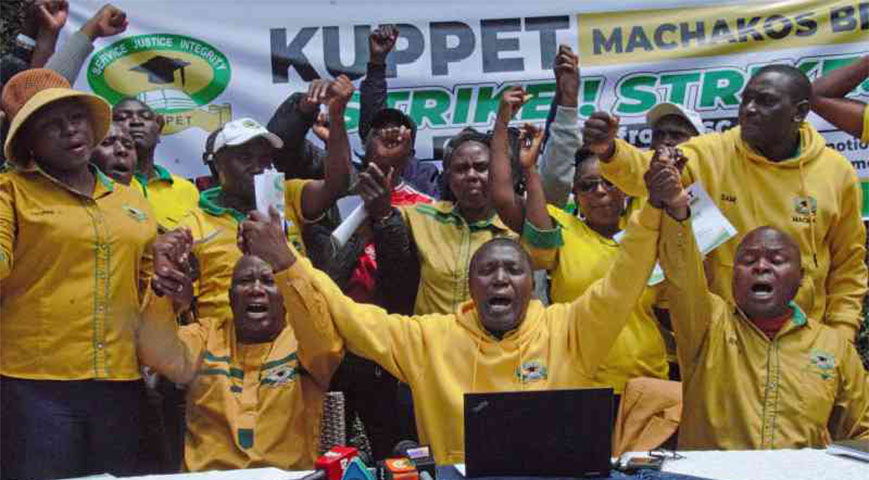Learning in secondary schools across Kenya remains interrupted as the nationwide teachers' strike enters its second week.
The Kenya Union of Post-Primary Education Teachers (KUPPET) has announced that the industrial action will persist despite a court order demanding its suspension.

KUPPET has openly criticized the Teachers Service Commission (TSC) for neglecting to address critical issues such as improved salaries and working conditions.
Did you read this?
Following a meeting in Nairobi, the union's National Governing Council reaffirmed its commitment to continuing the strike until its demands are adequately met.
"The strike remains in effect," declared KUPPET Secretary-General Akello Misori, highlighting the TSC's reluctance to engage in constructive negotiations. The prolonged strike raises concerns about the academic preparedness of Form Four students scheduled to undertake their final examinations at the end of the term.

The industrial action was initially sparked by delays in implementing the 2021-2025 Collective Bargaining Agreement (CBA).
Although the government has initiated the second phase of the CBA, KUPPET argues that the proposed salary increments fall short of meeting educators' financial needs. "This struggle goes beyond a mere 1,000 shilling increase," Misori stated. "Many teachers are burdened with loans and have invested heavily in furthering their education."
Despite the ongoing dispute, KUPPET acknowledges some positive steps, including government commitments to recruit more Junior Secondary School (JSS) teachers and appropriately compensate those in acting roles.
Nevertheless, the union insists that additional measures, notably concerning teacher promotions, are necessary to uphold the profession's dignity.
In a stern advisory, KUPPET has urged parents to keep their children at home during the strike, emphasizing that the union and its members cannot ensure student safety amid the ongoing disruptions. The union maintains that the strike will conclude only when a satisfactory return-to-work agreement is reached.
Attempts to resolve the impasse through negotiations with the TSC have been unsuccessful. While the TSC has secured a court order to halt the strike, KUPPET contends that the ruling is inconsequential since it was issued after the strike had commenced.
As the deadlock persists, the future of Kenya's secondary education system and the welfare of thousands of students remain in limbo.









